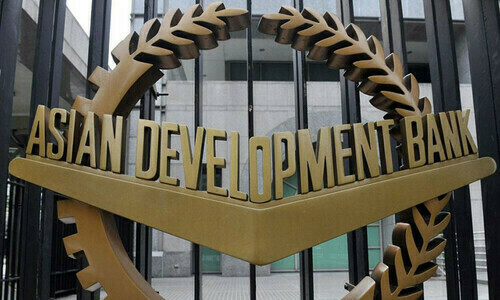ISLAMABAD: The Central Development Working Party (CDWP) has approved Rs11.7 billion for five development projects, including the establishment of a directorate in the federal capital for the registration of seminaries, a step towards enhancing the oversight and regulation of religious educational institutes in the country.
Additionally, the CDWP has also recommended two more projects, with a combined cost of Rs60bn, for further consideration by the higher forum — Executive Committee of National Economic Council (Ecnec).
Planning Commission Deputy Chairman Jahanzeb Khan chaired the CDWP meeting on Thursday. The establishment of the Directorate General of Religious Education was approved for Rs1.253bn. All seminaries must register with the Ministry of Federal Education and Professional Training under this initiative.
The ministry would be the sole authority for collecting statistics and relevant information about these institutions. Moreover, 16 regional offices will be formed to help with this procedure.
According to an official announcement, seminaries that do not meet the registration requirements would be prohibited from operating in the country. Furthermore, institutions that violate terms and conditions of their registration will have their status revoked.
The ministry would also help seminaries open bank accounts.
The registered seminaries will be assisted in obtaining affiliation with the boards of intermediate and secondary education and technical education, allowing their students to participate in standardised examinations for secondary and higher secondary education, as well as technical and vocational subjects.
Project for climate change ministry
The CDWP also authorised another Rs316.71m project to boost technical capacities of the Ministry of Climate Change (MoCC) and Environmental Coordination (EC). The goal of this initiative was to connect Pakistan’s climate change agenda with national development priorities and increase coordination at all levels.
The PC-1 aims to improve technical capacities of MoCC and the EC to respond to Pakistan’s climate change concerns more effectively.
The project is being considered for inclusion in the Pakistan Hydromet and Climate Services Project portfolio, which is being supported by the World Bank through the National Disaster Risk Management Fund, for which a no-objection certificate has already been given.
The CDWP has also approved Rs1.349bn for a pilot project of installation of a wide area monitoring system for the NTDC Power Network. This project is proposed to be funded through a World Bank loan and will be implemented in the districts of Jamshoro, Kashmore, Matiari, and Tharparkar.
Moreover, another project worth Rs1.6bn was approved for infrastructure rehabilitation and reconstruction of health facilities damaged by the 2022 flood.
Ecnec
The CDWP has proposed for Ecnec approval a Rs33bn project titled Refugees and Host Communities Regional Sub Windows SH Khyber Pakhtunkhwa Human Capital Investment Project (KP-HCIP) Education Component.
The project is supported by foreign funding and focuses on improving access to basic and secondary education for all children, with a particular emphasis on the education of girls. Primary schools in selected areas will be converted into middle schools, and middle schools will be upgraded to high schools as part of this plan.
Another staggering Rs27.05bn was recommended to Ecnec for approval of the 32.2-kilometre Peshawar Northern Bypass.
This project’s funding is suggested under the Public Sector Development Programme.
The third edition of this project calls for the construction of a four-lane bypass with associated service roads on Peshawar’s northern outskirts.
The project also includes the installation of lined drains on both sides of the bypass and the service roads.
All clay lines will be linked to service roads, whereas asphalt routes will connect directly to the bypass without median openings.
Published in Dawn, October 27th, 2023












































Dear visitor, the comments section is undergoing an overhaul and will return soon.